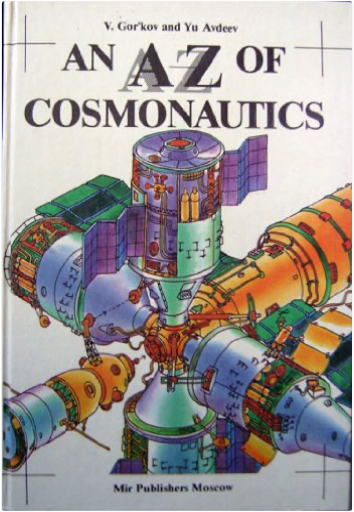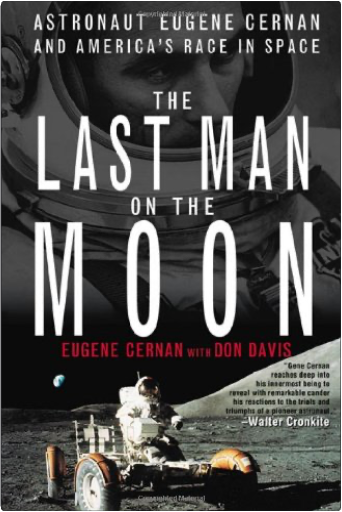 The Last Man on the Moon: Astronaut Eugene Cernan and America's Race in SpaceEugene Cernan, Donald A. Davis The Last Man on the Moon: Astronaut Eugene Cernan and America's Race in SpaceEugene Cernan, Donald A. Davis Eugene Cernan is a unique American who came of age as an astronaut during the most exciting and dangerous decade of spaceflight. His career spanned the entire Gemini and Apollo programs, from being the first person to spacewalk all the way around our world to the moment when he left man's last footprint on the Moon as commander of Apollo 17. 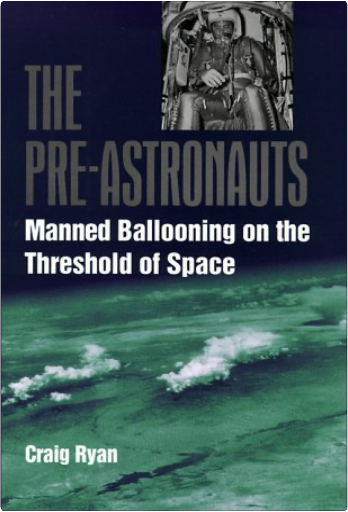 The Pre-Astronauts: Manned Ballooning on the Threshold of SpaceCraig Ryan The Pre-Astronauts: Manned Ballooning on the Threshold of SpaceCraig Ryan In the 1950s and early 1960s a small fraternity of daring, brilliant men made the first exploratory trips into the upper stratosphere, reaching the edge of outer space in tiny capsules suspended beneath plastic balloons. This book tells the story of these tenacious men as they labored on the cusp of a new age, seeing things that no one had ever seen and experiencing conditions no one was sure they could survive. 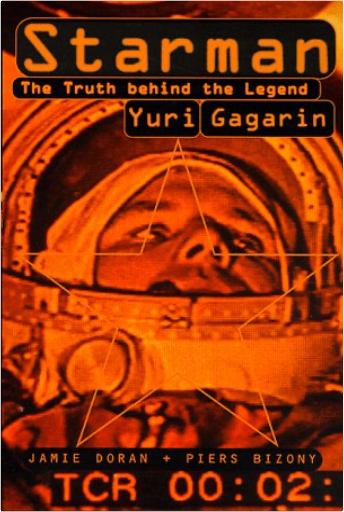 Starman: Truth Behind the Legend of Yuri GagarinPiers Bizony, Jamie Doran Starman: Truth Behind the Legend of Yuri GagarinPiers Bizony, Jamie Doran On April 12 1961, Yuri Gagarin became the first human in history to leave the Earth's atmosphere and venture into space. An icon of the 20th century, he also became a danger to himself, a threat to the Soviet state and, at the age of 34, he was killed in a plane accident. Based on KGB files, restricted documents from Russian space authorities, and interviews with his friends and colleagues, this biography of the Russian cosmonaut reveals a man in turmoil: torn apart by powerful political and emotional pressures; his private life in ruins; fighting a losing battle against alcoholism; and rebelling against the cruelties of a corrupt totalitarian regime. The authors also suggest that Gagarin's death was no accident but a deliberate "political elimination". 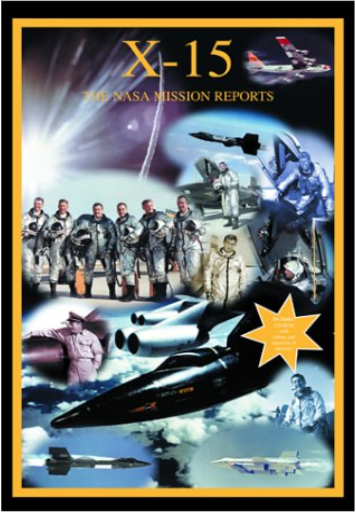 X-15: The NASA Mission Reports: Apogee Books Space Series 13Robert Godwin X-15: The NASA Mission Reports: Apogee Books Space Series 13Robert Godwin The X-15 program, which produced mountains of new information about hypersonic flight, is thoroughly outlined in this volume. 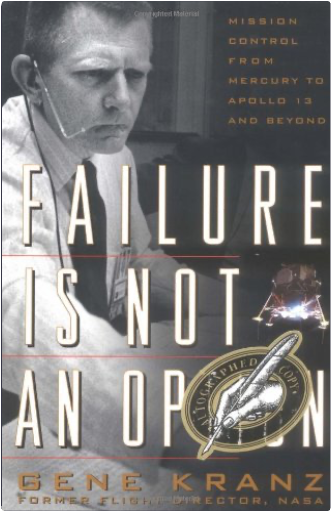 Failure Is Not an Option: Mission Control from Mercury to Apollo 13 and BeyondGene Kranz Failure Is Not an Option: Mission Control from Mercury to Apollo 13 and BeyondGene Kranz Gene Kranz was present at the creation of America's manned space program and was a key player in it for three decades. As a flight director in NASA's Mission Control, Kranz witnessed firsthand the making of history. He participated in the space program from the early days of the Mercury program to the last Apollo mission, and beyond. He endured the disastrous first years when rockets blew up and the United States seemed to fall further behind the Soviet Union in the space race. He helped to launch Alan Shepard and John Glenn, then assumed the flight director's role in the Gemini program, which he guided to fruition. With his teammates, he accepted the challenge to carry out President John F. Kennedy's commitment to land a man on the Moon before the end of the 1960s. 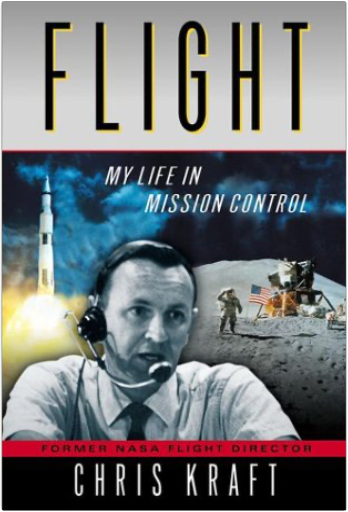 Flight: My Life in Mission ControlChristopher Kraft Flight: My Life in Mission ControlChristopher Kraft The Right Stuff meets Rocket Boys in this gripping memoir by the man who helped create some of the greatest moments in U.S. space history. 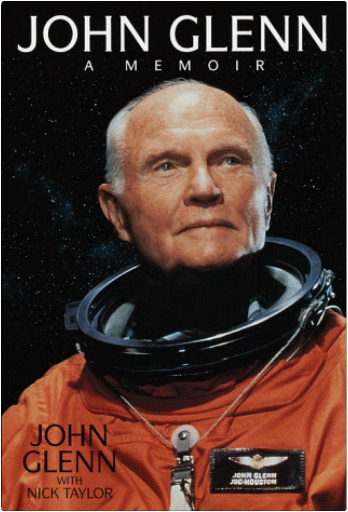 John Glenn: A MemoirJohn Glenn, Nick Taylor John Glenn: A MemoirJohn Glenn, Nick Taylor He was the first American astronaut to orbit the Earth. Nearly four decades later, as the world's oldest astronaut, his courage riveted a nation. But these two historic events only bracket a life that covers the sweep of an extraordinary century. In this engrossing book, John Glenn tells the story of his unique life—one lived at the center of a momentous time in history by a man who helped shape that history.  Kosmos: A Portrait of the Russian Space AgeAdam Bartos Kosmos: A Portrait of the Russian Space AgeAdam Bartos The Space Race was an exhilirating moment in history, alternately frighten-ing, thrilling, awe-inspiring, and ultimately, sublime. Its most enigmatic element was the competition. The Soviets seemed less technologically sophisticated (at least from the American perspective) but in fact won many of the races: first satellite to orbit the earth; first man in space; first unmanned landings on Mars, Venus, and the Moon; first woman in space; most powerful rockets; and, until its recent fiery death, the most long-lived space station to name but a few. The inherent contradictions of the age—the mixture of technologies high and low, of nostalgia and progress, of pathos and promise—are revealed in Kosmos, Adam Bartos's astonishing photographic survey of the Soviet space program. Bartos' fascination with this subject led him to seek out places like the bedroom where Yuri Gagarian slept the night before his history-making flight into space, located in the Baiknour Cosmodrome, the one-time top-secret space complex in the Kazakh desert. Bartos also takes us inside the cockpit of the Merkur space capsule, used to ferry crew members and supplies to the super-secret Almaz orbital space stations, and behind the changing screens cosmonauts used before being fitted for their space suits at Zvezda, the chief manufacturer of Soviet life-support systems. In total, Kosmos presents over 100 of Bartos's photographs, rich with the incongruities of the history, science, culture, and politics of the Space Age. Professor Svetlana Boym's insightful introduction to the technological and cultural aspects of Soviet space exploration provides a fitting context for the photographs. For anyone interested in the space age, Kosmos is an essential and fascinating portrait. 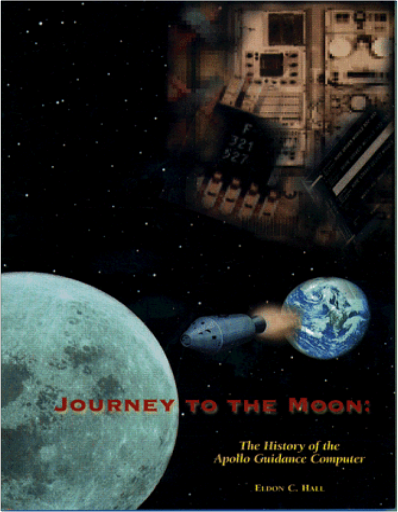 Journey to the MoonEldon C Hall, E Hall Journey to the MoonEldon C Hall, E Hall The first of its kind, Journey to the Moon details the history and design of the computer that enabled U.S. astronauts to land on the moon. The book recalls the history of computer technology, both hardware and software, and the applications of digital computing to missile guidance systems and manned spacecraft. The book also offers graphics and photos drawn from the Draper Laboratories' archives that illustrate the technology and related events during the Apollo project. Written for experts as well as lay persons, Journey to the Moon is the first book of its kind and a must for anyone interested in the history of science and the relevance of computer technology to space exploration. 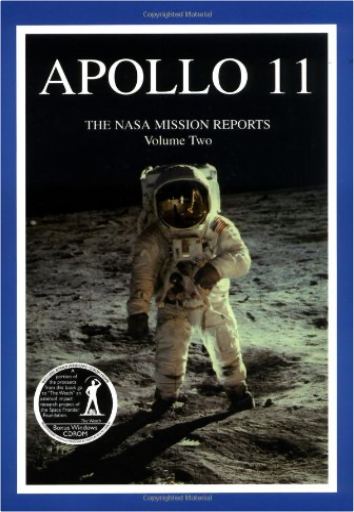 Apollo 11: The NASA Mission Reports, Vol. 2Robert Godwin Apollo 11: The NASA Mission Reports, Vol. 2Robert Godwin Contains the entire crew of Apollo 11’s personal observations upon returning to earth. |
 Made with Delicious Library
Made with Delicious LibraryDenver, CO zipflap congrotus delicious library Tolva, John


